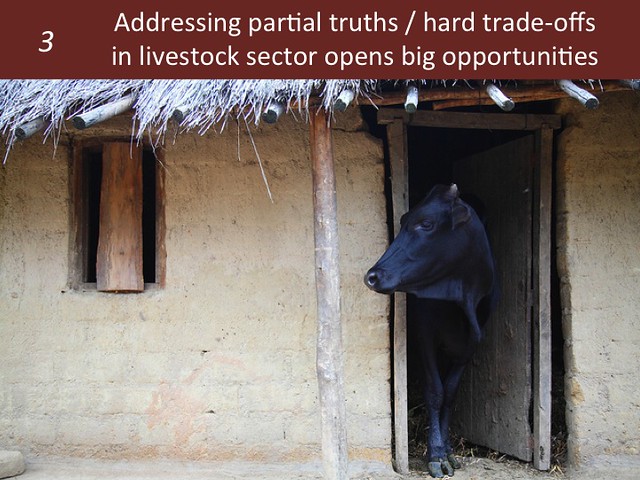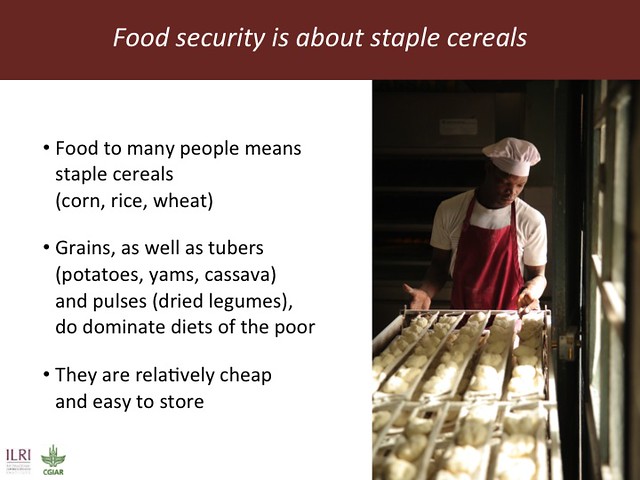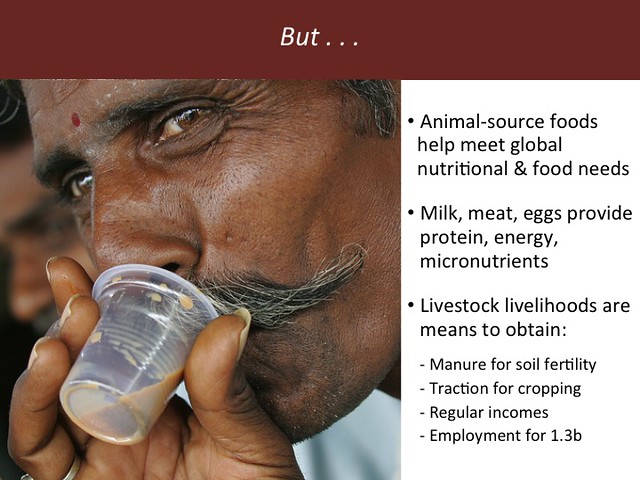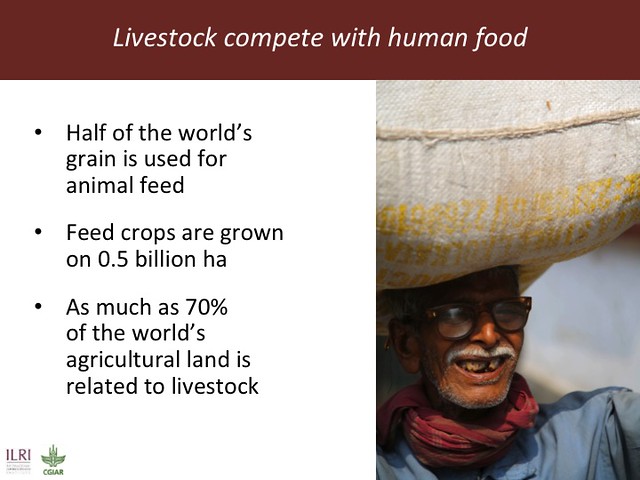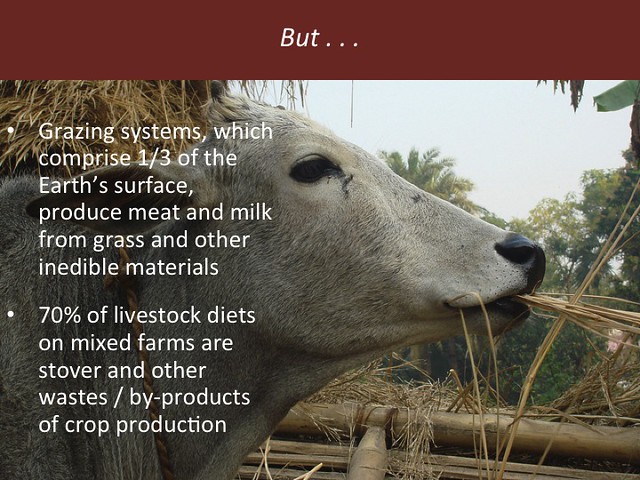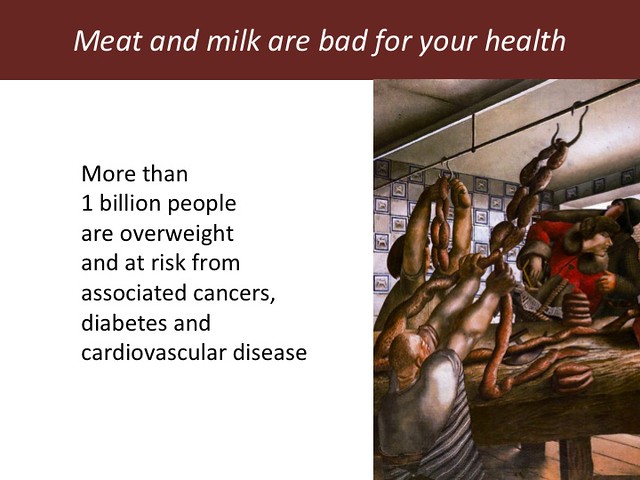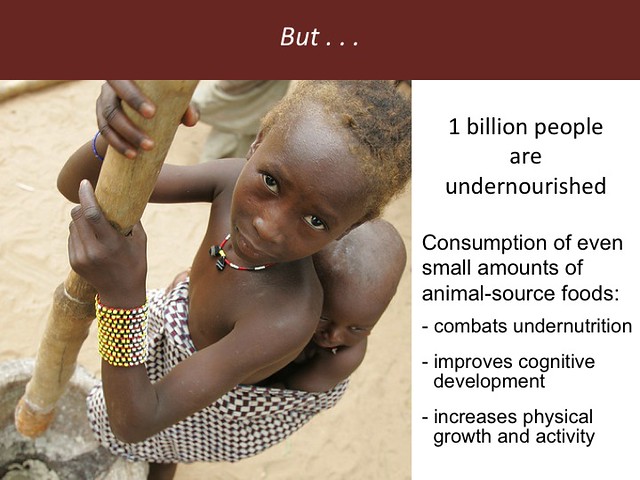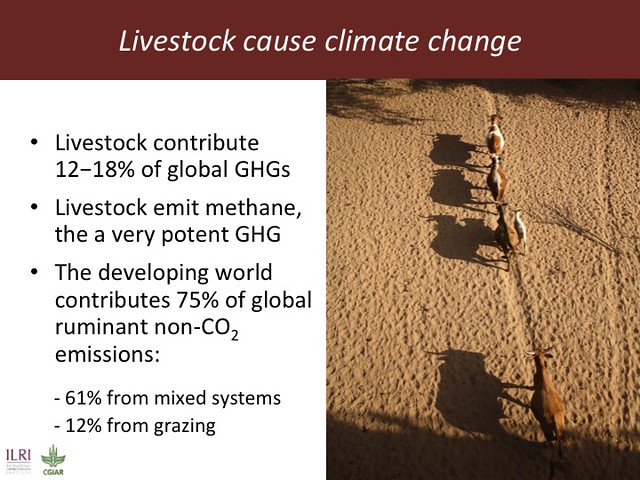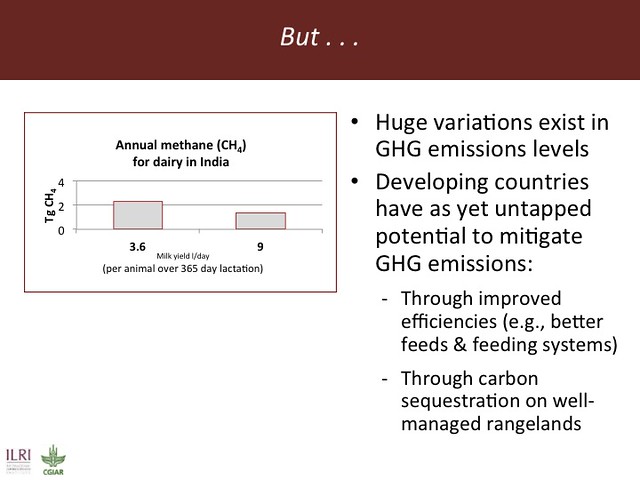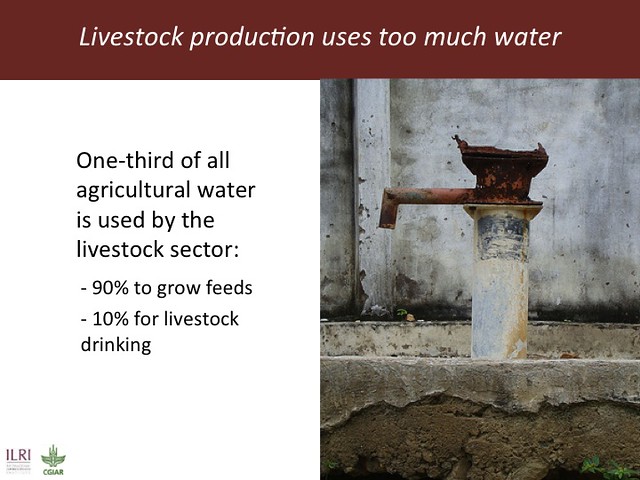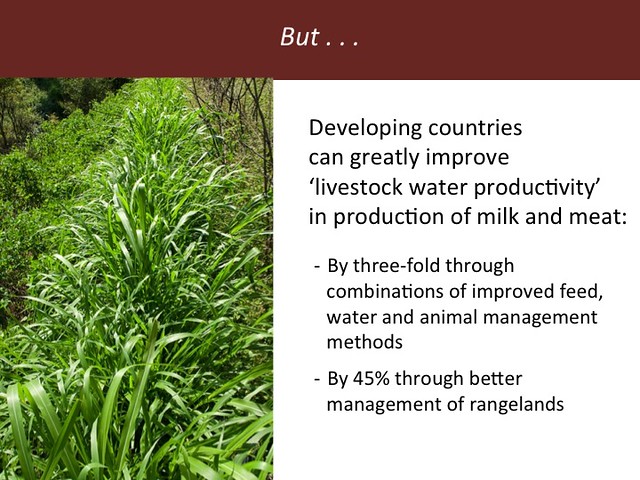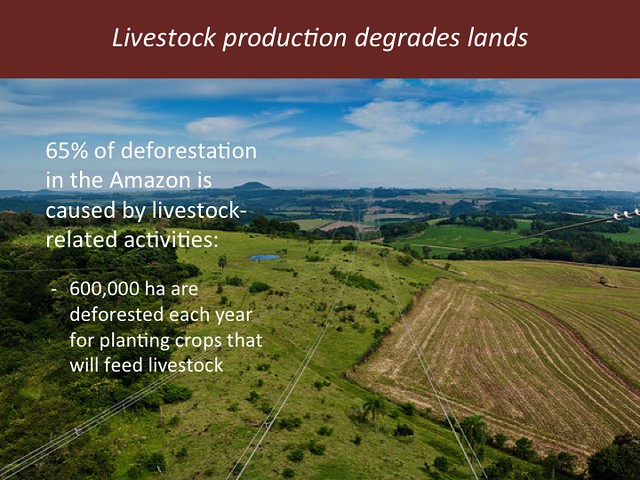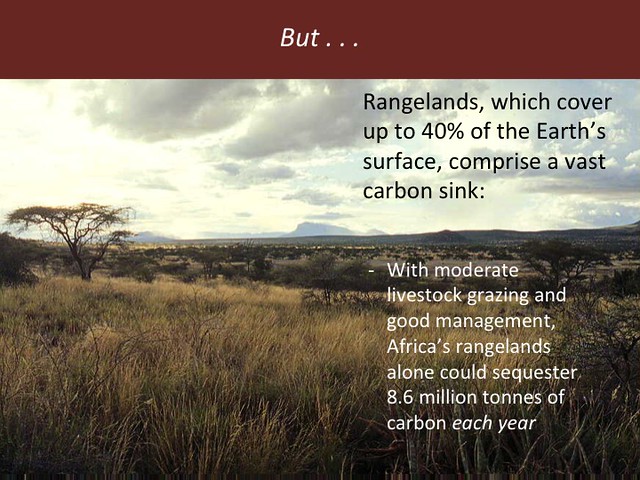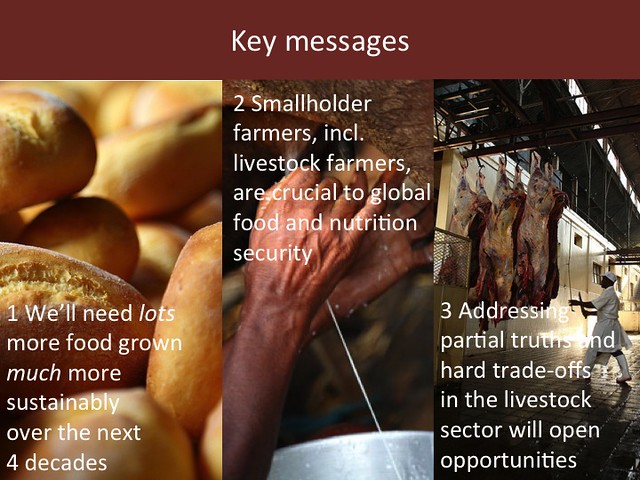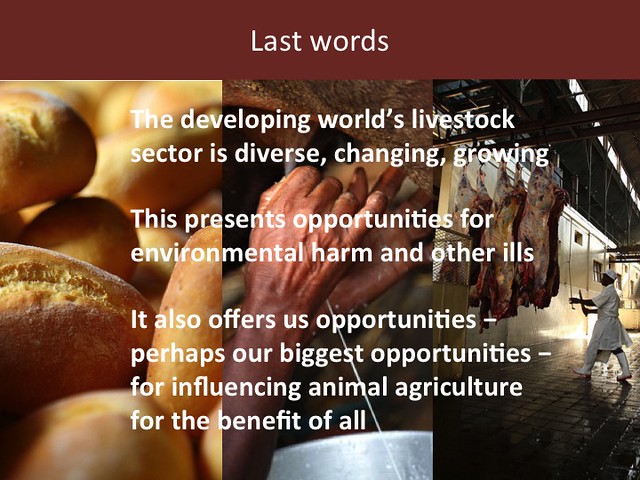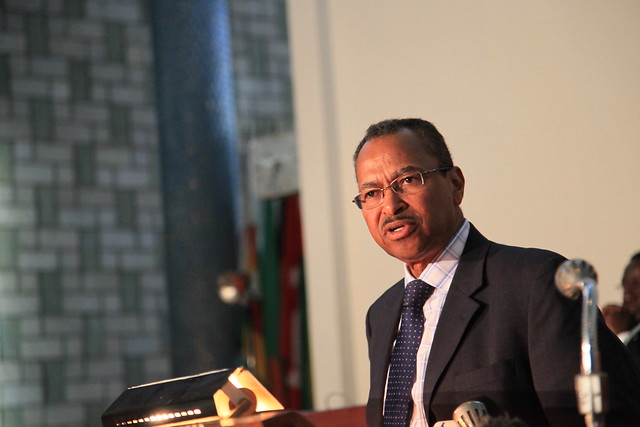Opening keynote slide presentation by Jimmy Smith, director general of ILRI, at the 22nd International Grasslands Congress, held in Sydney, Australia, 16 September 2013 (credit: ILRI).
This is the second of a two-part article on the opening keynote presentation at the International Grasslands Congress, held in Sydney, Australia from 16 to 19 September 2013, given by Jimmy Smith, director general of the International Livestock Research Institute (ILRI), on Monday 16 September.
Importance of small-scale livestock production: The ‘goods’ and the ‘bads’
‘Livestock are a source of nutrient-dense animal-source foods that can support normal physical and mental development and good health; an income stream that enables the world’s billion poorest people to buy staple foods and other household essentials; and a means of underpinning soil health and fertility and increased yields, thereby enabling more sustainable and profitable crop production’, Smith said in his keynote.
‘But in doing so, if not managed well, livestock production can harm the environment. The sector is a significant source of greenhouse gases, for example, and can be detrimental to human health with the transmission of diseases from livestock to people.’
But there are real opportunities, Smith went on to say, to mitigate such negative impacts now and as livestock systems in the developing world transition in the coming decades.
‘The many goods and services that livestock provide can and must be produced in ways that are less damaging to the environment and pose less risk to public health while also sustaining the livelihoods of hundreds of millions of the world’s poorest citizens, who currently have few options other than livestock farming.’
Livestock sector opportunities and trade-offs in a nutshell
In conclusion
Smith concluded by saying that the developing world’s livestock sector is diverse, changing and growing rapidly. ‘This will pose considerable risks, to the environment and to animal and human health in particular. However, if managed well, it also offers enormous opportunities simultaneously to contribute to global food and nutritional security and poverty reduction in rural areas.’
Read the first part of this article: Keynote address at International Grasslands Congress, Part 1: Why the world’s small-scale livestock farms matter so much, 16 Sep 2013.
About Jimmy Smith
Jimmy Smith, keynote speaker at the Sep 2013 International Grasslands Congress, held in Sydney, Australia, and director general of the International Livestock Research Institute (ILRI) (photo credit: ILRI/Zerihun Sewunet).
Jimmy Smith, a Canadian, is director general of the International Livestock Research Institute (ILRI), a position he assumed on 1 October 2011. Before joining ILRI, he worked for the World Bank, in Washington, DC, where he led the Bank’s Global Livestock Portfolio. Before joining the World Bank, he held senior positions at the Canadian International Development Agency (CIDA). Still earlier in his career, Smith worked at ILRI and its predecessor, the International Livestock Centre for Africa (ILCA), where he served as the institute’s regional representative for West Africa and subsequently managed the ILRI-led Systemwide Livestock Programme of the CGIAR, an association of 10 CGIAR centres working at the crop-livestock interface. Before his decade of work at ILCA/ILRI, Smith held senior positions in the Caribbean Agricultural Research and Development Institute (CARDI). Smith was born in Guyana, in the Caribbean, where he was raised on a small mixed crop-and-livestock farm. He is a graduate of the University of Illinois at Urban-Champaign, USA, where he completed a PhD in animal sciences. He is widely published, with more than 100 publications, including papers in refereed journals, book chapters, policy papers and edited proceedings.
About ILRI
The International Livestock Research Institute (ILRI) works with partners worldwide to enhance the roles that livestock play in food security and poverty alleviation, principally in Africa and Asia. The outcomes of these research partnerships help people in developing countries keep their farm animals alive and productive, increase and sustain their livestock and farm productivity, find profitable markets for their animal products, and reduce the risk of livestock-related diseases. ILRI is a member of the CGIAR Consortium, a global research partnership of 15 centres working with many partners for a food-secure future. ILRI has two main campuses in East Africa and other hubs in East, West and Southern Africa and South, Southeast and East Asia.
About the 22nd International Grasslands Congress
The program and other information about the 22nd International Grasslands Congress, ‘Revitalising grasslands to sustain our communities’, is online here.

